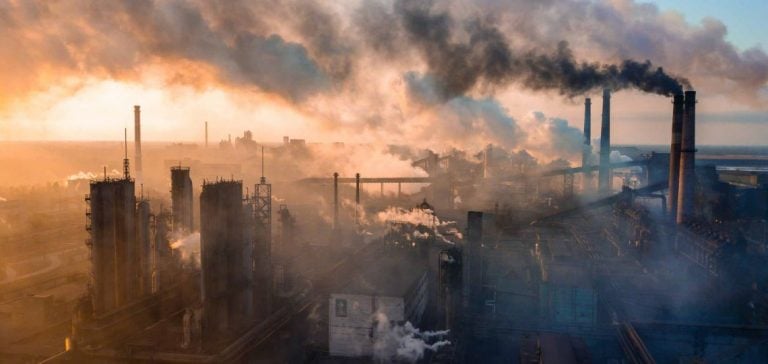The efforts made by France to reduce emissions of atmospheric pollutants are bearing fruit, according to a recently published government report. Between 2000 and 2023, levels of many pollutants have seen a notable decrease, contributing to the improvement of air quality in the country.
Significant advancements have been achieved thanks to actions taken at both the national and local levels. “Significant progress has been made in reducing atmospheric pollutant emissions as a result of actions driven both nationally and locally,” indicates the report on outdoor air quality in France in 2023.
Reductions of Key Pollutants
The report details the decreases observed for several pollutants. Nitrogen oxides (NOx) have seen a reduction of 64%, fine particulate matter with a diameter of 10 micrometers or less (PM10) has decreased by 49%, and ultra-fine particulate matter with a diameter of 2.5 micrometers or less (PM2.5) has decreased by 56%. Sulfur dioxide (SO₂) has recorded an impressive decrease of 87%.
These reductions are the result of strict environmental policies and cleaner technologies adopted by industries and transportation. “In 2023, air quality improved in France, but it remains a public health issue,” commented Agnès Pannier-Runacher, Minister of Ecological Transition, praising the adoption of the new European air quality directive.
Persistence of Pollution Episodes
Despite these advancements, France is not exempt from challenges. The country continues to face exceedances of air quality standards, particularly regarding NO₂ levels and PM10 fine particulate matter. In 2023, these exceedances were observed in three urban areas for NO₂ and in two for PM10.
Pollution episodes related to ozone (O₃) have also increased, influenced by meteorological conditions conducive to its formation. Two episodes of “national scale” ozone pollution were recorded in metropolitan France in June and September 2023. Additionally, PM10 fine particles have been affected by natural phenomena, such as Saharan dust storms, particularly in the Antilles and French Guiana.
Impact on Public Health
Exceedances of air quality standards have direct repercussions on public health. Prolonged exposure to elevated levels of NO₂ and fine particulate matter is associated with respiratory and cardiovascular problems. Health authorities remain vigilant and are working to strengthen monitoring and preventive measures to protect public health.
Continued efforts to reduce emissions, combined with enhanced air quality monitoring, are essential to maintain and improve the progress made. Collaboration between different levels of government and economic actors is crucial to achieving the objectives set by European directives.
Future Perspectives
The report emphasizes the importance of continuing initiatives aimed at reducing emissions of atmospheric pollutants. The adoption of cleaner technologies, strengthening of environmental standards, and promotion of sustainable transport modes are key elements to ensure continuous improvement of air quality in France.
Furthermore, public awareness and citizen engagement play a crucial role in the success of these efforts. A concerted and integrated approach will address the persistent challenges of air pollution and ensure a healthy environment for future generations.






















